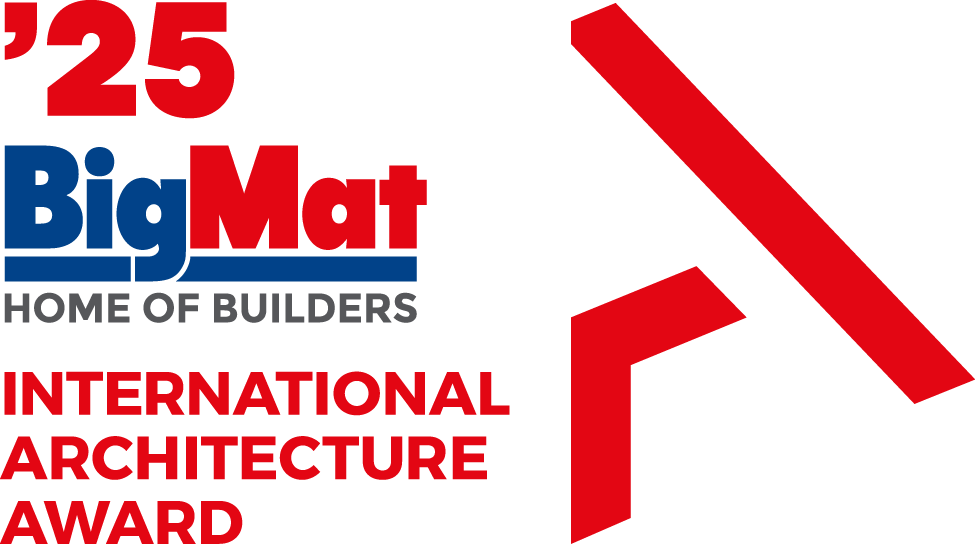BMIAA’23
The sponsor of the BigMat International Architecture Award’23 is the BigMat International S.A. group, which is based in Luxembourg and operates across seven European countries, namely Belgium, Czech Republic, France, Italy, Portugal, Slovakia and Spain.
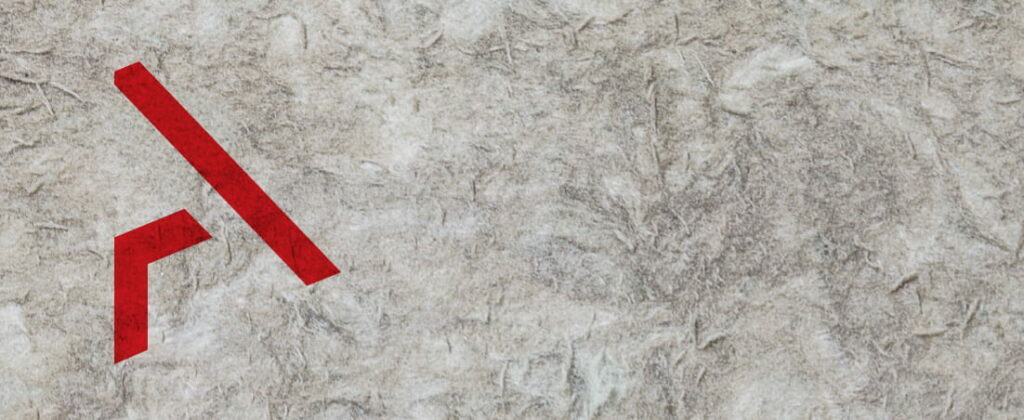
The awards panel will select a total of 14 BMIAA’23 National Awards: seven for small-scale residential architecture projects and seven for other architectural works. All seven countries competing for the award must be represented in both categories. The seven National Awards for Small-Scale Residential Architecture will compete for the BMIAA’23 Grand Prize for Small-Scale Residential Architecture. Meanwhile, the seven National Awards for all other works of architecture will compete for the BMIAA’23 Grand Prize for Architecture.
Awards for Small-Scale Residential Architecture: (1)
- 7 x BMIAA’23 National Awards for Small-Scale Residential Architecture. Prize money: €1,500.
- BMIAA’23 International Grand Prize for Small-Scale Residential Architecture. Prize money: €30,000 (€1,500 for the National Award + €28,500 for the Grand Prize).
Architecture Awards: (2)
- 7 x BMIAA’23 National Awards for Architecture. Prize money: €1,500.
- BMIAA’23 International Grand Prize for Architecture. Prize money: €30,000 (€1,500 for the National Award + €28,500 for the Grand Prize).
Young Architect Award: (3)
- BMIAA’23 Special Mention for Young Architects. Prize money: €1,500.
(1) Award intended for single-family homes, whether new construction, extension, reform and/or rehabilitation. Small-scale residential projects containing up to a maximum of 12 residential units and/or a maximum total built area of 1,200m2 will also be considered. In the event that the Awards Office considers that any of the projects submitted does not belong to this category, it may, with the approval of the awards panel, switch them to the Architecture Awards category.
(2) Encompasses all architectural interventions carried out in areas other than small-scale residential architecture.
(3) A BMIAA’23 Special Mention for Young Architects will be awarded to an architectural project built by an architect who was aged under 40 on the date the work was completed. For team or joint entries, all team members must meet this requirement in order to be eligible for this special mention. This prize, if it exists at all, must come from among the 14 award winners.
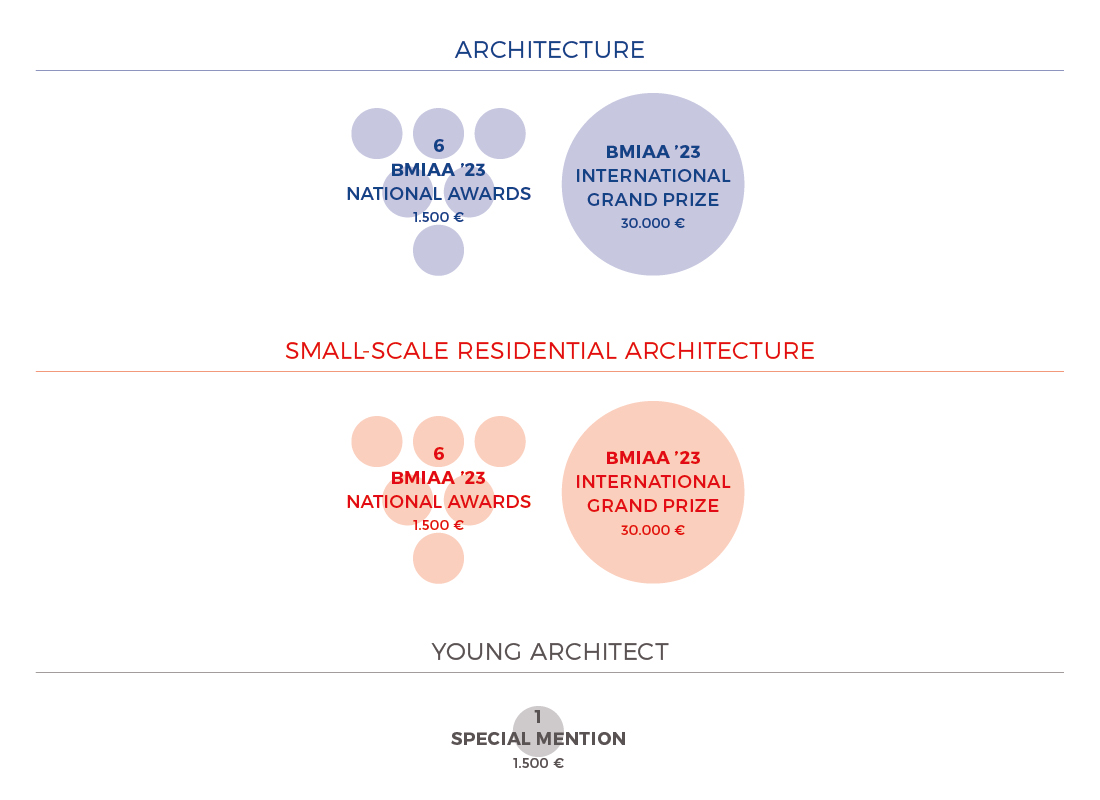
The two Grand Prizes may not be declared void and nor may there be a dead heat. A catalogue of the winning entries will be published. The prize money for each award will be paid to the creator or creators appearing on the prize entry form and will be subject to the tax agreements in effect between Luxembourg and the relevant country or countries of the prize winners.
JESÚS APARICIO / AWARD PRESIDENT
Doctor of Architecture and Professor of Architectural Projects at the Higher Technical School of Architecture of Madrid (ETSAM).
Holding a degree in Architecture from the Superior Technical School of Architecture in Madrid (ETSAM), a Master of Architecture from Columbia University in New York, and a Doctorate in Architecture, Jesús Aparicio approaches architecture from three different fronts: research, teaching and professional practice. As a researcher, he has obtained funding from the Academy of Spain in Rome, as well as grants from Fulbright/MEC and Bankia. He is a full professor of Architectural Projects at the ETSAM and a guest lecturer and speaker at numerous architecture schools and institutions across Europe, Asia and the Americas.
The buildings designed by him have earned numerous accolades, including the ar+d Prize, the Architecture and Town Planning Prize from Madrid City Council, the HYSPALIT Brick Architecture Award and the Saloni Award. In 2000, he represented Spain at the Venice Architecture Biennale. In 2005, he was selected to take part in the Spanish Architecture Biennale. In 2008, he was nominated for the Klippan Award and for the Swiss Architectural Award, and in 2012 he won the 39th edition of the IIDA Awards. More recently, in 2016 he was a runner-up at the 13th edition of the Spanish Architecture and Town Planning Biennial. In 2022, he won first prize in the international competition for the extension and refurbishment of the Spanish Royal Academy of Spain in Rome.
He is also curator of the exhibitions “Young Architects of Spain” and “Domusae, Spaces for Culture”, director of the Ceramic Tile Studies Department in Madrid and editor of the Ceramic Essays Collection. Both his theoretical research and his architecture projects have received international acclaim and his publications include: “El Muro”, “El Hogar del Jubilado”, “Terragni, la densidad en el espacio”, “El Danteum”, “Construir con la razón y los sentidos” and “Jesús Aparicio AA40”.
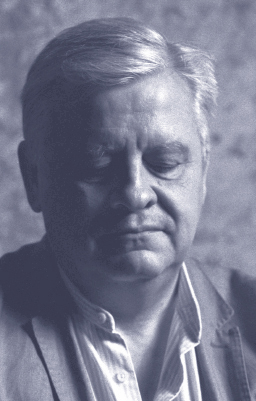
JESÚS DONAIRE / AWARD SECRETARY
Jesús Donaire is a Doctor of Architecture and Professor of Architectural Projects at the Polytechnic University of Madrid.
He earned his master’s degree in Advanced Architectural Design from Columbia University in New York on a Fulbright scholarship, with an Honorary Award for Excellence in Projects and the William Kinne Research Award. He secured research grants from the Social Council of the Polytechnic University of Madrid and the Royal Academy of Spain in Rome.
He has been a visiting professor at the Polytechnic University of Milan since 2016. He has also been Assistant Professor at Barnard + Columbia College of Architecture in New York, Professor at the University of Nebrija, at Suffolk University in Boston and at the University of Navarra. He has been invited as a guest lecturer, workshop tutor and project juror at various universities and cultural institutions across Europe, the United States and Canada.
His professional work has earned him numerous international awards, notably two ENOR awards and various accolades from LLEDÒ, COAM Madrid, ASCER de Arquitectura Cerámica, the International Interior Design Association of Chicago, the ARCHITIZER Awards in New York on three occasions, and the Architecture Awards with Ñ. His work has been widely published and exhibited.
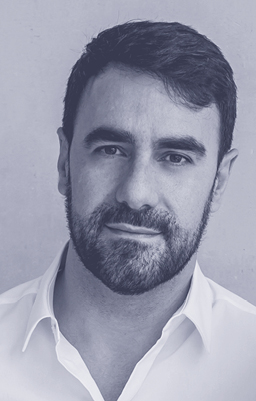
DAVID VAN SEVEREN / BELGIUM
Architect and founder of OFFICE Kersten Geers David Van Severen
OFFICE Kersten Geers David Van Severen was founded in 2002 by Kersten Geers (1975) and David Van Severen (1978).
OFFICE is renowned for its idiosyncratic architecture, in which realisations and theoretical projects stand side by side. The projects are direct, spatial and firmly rooted in architectural theory. The firm reduces architecture to its very essence and most original form: a limited set of basic geometric rules is used to create a framework within which life unfold out in all its complexity.
Since its establishment OFFICE Kersten Geers David Van Severen has earned a reputation as one of Belgium’s most successful and renowned practices, and one of the world’s truly original voices in present-day architecture. OFFICE engages in all architectural and urbanist design, creating projects of all scales ranging from furniture to masterplanningin Belgium as well as internationally. This practice is combined with academic research and teaching. These two aspects of OFFICE’s work are explicitly each other’s mirror, creating unexpected parallels between the academic and practical work.
David Van Severen graduated in Architecture and Urbanism at the University of Ghent and at the ETSA Madrid. Since 1995 he designed and made several objects, installations and furniture. He worked with Stéphane Beel Architects, Xaveer De Geyter Architects and for Atelier Maarten Van Severen. He was a teacher and guest critic at the Academy of Amsterdam, the TU Delft, the Berlage Institute and the Architecture School of Versailles. He is currently teaching at Harvard GSD.

PETR JANDA / CZECH REPUBLIC + SLOVAKIA
Petr Janda is an architect and an artist. He graduated from the Faculty of Architecture at the Czech Technical University in Prague and the Academy of Fine Arts in Prague (School of Monumental Art). In 2008 he founded his own studio petrjanda/brainwork. Between 2011 and 2014, he was a member of the board of Czech Chamber of Architects and a chairman of the Promotion of architecture working group. He is currently teaching as a guest professor on Faculty of Arts and Architecture at Technical university in Liberec. In 2020 and 2021, he was nominated for the Architect of the Year in the Czech Republic. His work has earned him awards internationally, including being shortlisted for Mies van der Rohe Award 2022. His approach is based on interconnecting physical and metaphysical layers of the project, resonating of form and content and engaging sculptural methods with the conceptual tendencies. He uses the subliminal method of nomadic thinking, seeking new authenticity in every task. He always starts from scratch and tries to avoid the usual clichés by connecting physical and metaphysical layers. He considers initiation of projects as part of the work in which he reflects architectural, programmatic and social aspects of our world.

GILLES DELALEX / FRANCE
Gilles Delalex is a principal of the French architecture firm Muoto, based in Paris. Muoto was founded by Gilles Delalex and Yves Moreau in 2003. Its activities cover the fields of architecture, urban planning, design, teaching, and scientific research. Its work often features minimal structures that can combine different activities, evolve in time, and merge economical and aesthetic issues. Since its establishment the office as realized various projects ranging from master plans, public buildings, housing, and installations. It has been selected to curate the French pavilion at the 2023 Venice Biennale. Gilles studied in Grenoble, Montreal, Brussels, and Manchester. He holds a DA (Doctor of Arts) from the University of Art & Design Helsinki. He is a professor of Paris-Malaquais School of Architecture, head of the department THP (Theory, History, Project), and co-director of the research lab LIAT focusing on infrastructures.
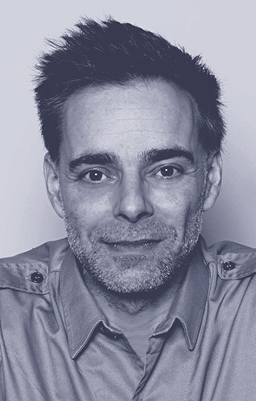
ENRICO MOLTEN / ITALY
Enrico Molteni (1969) is an architect and professor.
He studied at the Politecnico di Milano, at the Arkitektskolen i Aarhus (DK) and at the Univeritat Politècnica de Catalunya (E), where he obtained his PhD.
He opened his office in 1997 in Milan.
He has participated in more than 125 design competitions. His work, including projects in Italy, South Korea and Thailand, has been published and recognized internationally.
He has been teaching at the Mendrisio Academy and currently is professor at the University of Genoa. He has lectured and participated in architecture exhibition in numerous institutions, both in Italy and abroad.
He has been editor of Casabella.
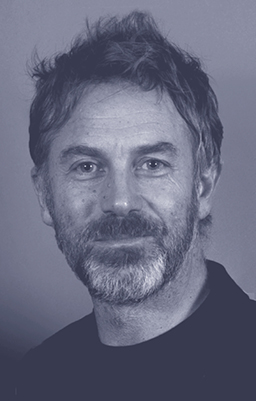
NUNO BRANDÃO COSTA / PORTUGAL
Nuno Brandão Costa graduated from the Faculty of Architecture of the University of Oporto (FAUP) in 1994, gaining a doctorate in 2013.
Praticant at Herzog & de Meuron, Basel, in 1992/1993, started his own practice in 1998, in Oporto.
He was assistant to Professor Domingos Tavares and Professor Pedro Ramalho, and is currently regent professor of Project 4, project design unit he has been teaching since 2001. He was a coordinator and teacher on the Advanced Studies in Architectural Design course at FAUP in 2014/2015, under surveillance of Eduardo Souto de Moura. Together with Professor José Miguel Rodrigues he is coordinator of the PHD FAUP study option E “Project Theory and Practices”.
Appointed with Sérgio Mah, curator of the Official Portuguese Representation at the 16th Venice Architecture Biennale, 2018.
He has been guest lecturer at ETSA, University of Navarra; Estudio Barozzi, University of Girona; and the EHL Campus Lausanne. He has been guest critic at the Architecture School of the University of Minho (EAUM); the Architecture Department of the University of Coimbra (DARQ); FAPyD-UNR in Rosário, Argentina; Università Iuav di Venezia (Iuav), Harvard Graduate School of Design (GSD), Cambridge, USA, École Polytechnique Federale de Lausanne (ENAC-EPFL) and ETH GTA Zurich, Switzerland.
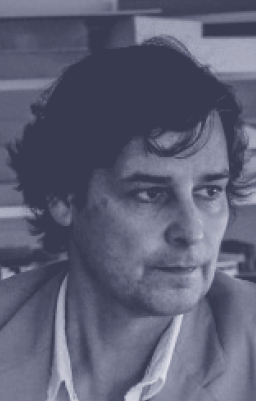
ÁNGELA GARCÍA DE PAREDES / SPAIN
Ángela García de Paredes (Madrid 1958, PhD ETSAM) founded Paredes Pedrosa Arquitectos with Ignacio Pedrosa in 1990. Professor at the Project Design Department in Madrid ETSAM, and visiting professor, lecturer, juror and curator through national and international contexts. Awarded in several Spanish and Ibero-American Biennales and exhibited in five Venice Biennials, in 2018 with a monographic exhibition.
Their built works include cultural buildings and also specific interventions in historical buildings. Awarded nationally and internationally, among others by the Government of Spain with the Spain Fine Arts Gold Medal 2014, AREA Award 1999, Spain Architecture Award 2007, Gold Medal Sustainable Architecture 2012, European Prize AADIPA 2015, finalist EU Mies Award 2015 and Aga Khan Prize 2016, Honourable Mention Piranesi Prix de Rome 2016, Eduardo Torroja Award 2016.
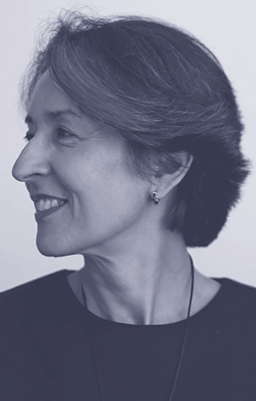
ORGANISER
The BigMat International Group, with headquarters in Luxembourg and operating out of seven European countries (Belgium, Czech Republic, Slovakia, France, Italy, Portugal and Spain), is proud to announce the BigMat International Architecture Award 2023 (BMIAA’23).
The group was founded in 1981 in a bid to improve and streamline the distribution of construction materials by bringing independent businesses under the umbrella of an association. The BigMat Architecture Award originated in Spain in 2005 and following three back-to-back national editions it evolved into an international event garnering overwhelming levels of interest. The first edition of the award took place in 2013, with the grand prize going to Belgian architect Xaveer de Geyter at the awards ceremony held in Granada, Spain. Spanish architect Alberto Campo Baeza was proclaimed the winner of the second edition of the event held in Berlin, Germany in 2015. In the third edition of the event held in 2017, French architecture studio Lacaton & Vassal was named the winner at a ceremony held in Florence. The fourth edition took place in the French city of Bordeaux in 2019, with Portuguese architect Eduardo Souto de Moura claiming the prize. At the last edition of the event held in 2021, coinciding with the 40th anniversary of the BigMat International SA group, Belgian architect Xaveer de Geyter once again won the prestigious award, this time in Paris.
The upcoming 2023 edition will be the award’s sixth outing, as it sets out once again to recognise works of outstanding architecture created within the last four years across the seven countries in which BigMat is present.
AIM OF THE AWARD
The award provides recognition and international exposure for buildings that have made a telling contribution to contemporary architectural culture. The award also singles out small-scale residential architecture that has been successful in providing quality spaces for its inhabitants in Belgium, the Czech Republic, Slovakia, France, Italy, Portugal and Spain.
As a further show of the BigMat Group’s support for these endeavours, the 2023 edition will feature two grand prizes, each worth €30,000: one specifically aimed at small-scale residential architecture projects and the other intended for all other architectural creations. Therefore, each of the seven countries will have a National Award for Small-Scale Residential Architecture as well as a National Architecture Award. Of the seven national awards for small-scale residential architecture, one will walk away with the BMIAA’23 Grand Prize for Small-Scale Residential Architecture. Similarly, of the seven national awards for all other architectural works, one will earn the BMIAA’23 Grand Prize for Architecture.
The award is open to architects who work in one or more of the seven countries eligible for the event. The work itself must also have been built in one of those countries.
Architects may enter as many works as they see fit, but must enter each one individually. In the case of joint works, at least one of the creators must meet the above requirements. When submitting an entry, each architect must choose either “Small-Scale Residential Architecture” or “Architecture” (which excludes small-scale residential).
ELEGIBILITY
To be eligible for the award, the project must have been built between 1 January 2019 and 1 January 2023 in any of the participating countries. Buildings that won or made the final in previous editions of this competition may not be entered again into this sixth edition.
Moreover, architects or architectural firms that have won the Grand Prize in previous editions will not be eligible to enter the BMIAA Awards again.
The awards ceremony will coincide with the Annual Congress of the BigMat International Group to be held in a European city in November 2023.
When a project is entered, it will be assigned to the country in which the architect responsible for the project is based, which must also be the country where the project was built. If the architect works out of more than one of the seven countries eligible for the award, the project must be presented for the country in which the project was effectively built.
AWARD
The awards panel will select a total of 14 BMIAA’23 National Awards: seven for small-scale residential architecture projects and seven for other architectural works. All seven countries competing for the award must be represented in both categories. The seven National Awards for Small-Scale Residential Architecture will compete for the BMIAA’23 Grand Prize for Small-Scale Residential Architecture. Meanwhile, the seven National Awards for all other works of architecture will compete for the BMIAA’23 Grand Prize for Architecture.
Prize money:
Awards for Small-Scale Residential Architecture: (1)
- 7 x BMIAA’23 National Awards for Small-Scale Residential Architecture. Prize money: €1,500.
- BMIAA’23 International Grand Prize for Small-Scale Residential Architecture. Prize money: €30,000 (€1,500 for the National Award + €28,500 for the Grand Prize).
Architecture Awards: (2)
- 7 x BMIAA’23 National Awards for Architecture. Prize money: €1,500.
- BMIAA’23 International Grand Prize for Architecture. Prize money: €30,000
(€1,500 for the National Award + €28,500 for the Grand Prize)
Young Architect Award: (3)
- BMIAA’23 Special Mention for Young Architects. Prize money: €1,500.
The awards panel may choose to grant other honourable mentions, though without any prize money. (1) Award intended for single-family homes, whether new construction, extension, reform and/or rehabilitation. Small-scale residential projects containing up to a maximum of 12 residential units and/or a maximum total built area of 1,200m2 will also be considered. In the event that the Awards Office considers that any of the projects submitted does not belong to this category, it may, with the approval of the awards panel, switch them to the Architecture Awards category.
(2) Encompasses all architectural interventions carried out in areas other than small-scale residential architecture.
(3) A BMIAA’23 Special Mention for Young Architects will be awarded to an architectural project built by an architect who was aged under 40 on the date the work was completed. For team or joint entries, all team members must meet this requirement in order to be eligible for this special mention. This prize, if it exists at all, must come from among the 14 award winners.
The two Grand Prizes may not be declared void and nor may there be a dead heat. A catalogue of the winning entries will be published. The prize money for each award will be paid to the creator or creators appearing on the prize entry form and will be subject to the tax agreements in effect between Luxembourg and the relevant country or countries of the prize winners.
PANEL
The panel will comprise renowned figures from each of the countries taking part in the award. No panel member may enter their own work or enter any work in which they were involved. In addition, they may not be related up to the second degree of consanguinity or affinity with any of the participants.
- CHAIRMAN: Jesús Aparicio. Doctor of Architecture and Lecturer at the Polytechnic University of Madrid.
- SECRETARY: Jesús Donaire. Doctor of Architecture and Lecturer at the Polytechnic University of Madrid. The Awards Secretary has the right to speak, but not to vote.
- PANELLISTS:
David Van Severen (Office Kersten Geers David Van Severen), representing Belgium.
Petr Janda (Brainwork), representing the Czech Republic and Slovakia.
Gilles Delalex (Muoto Architecture Studio), representing France.
Enrico Molteni, representing Italy.
Nuno Brandão Costa, representing Portugal.
Ángela García de Paredes, representing Spain.
The awards panel shall adopt decisions by majority vote from among its seven voting members. A second vote will be held in the event of a deadlock. If the deadlock persists, the chairman will have the casting vote.
Two sets of minutes will be released over the course of the process. The first of these will contain a shortlist of up to 10 small-scale residential architectural works for each country and a further 10 works for all other architectural categories, again for each country. This list will be posted on the competition website over the course of July 2023. The Awards Office will notify the shortlisted participants by email.
The second set of minutes will announce the panel’s decision, naming the 14 winning projects. The section of the minutes naming the 14 projects set to compete for the two International Grand Prizes of €30,000 will be posted on the competition website in September 2023. Again, the Awards Office will notify the winning participants by email. The two International Grand Prize winners will be announced at the final awards ceremony.
ENTRIES
The registration period and term for submitting entries will run from 18 January 2023 to 27 April 2023 at 23:59. The documentation needed for phase one of the BMIAA’23 Awards should be delivered in digital format and contain all the information needed to appraise the project. Project documents can be uploaded by heading to the “ENTER PROJECT” section of the website architectureaward.bigmat.com.
Shortly after entering their project, each candidate will receive a confirmation email containing a registration code to identify them during phase one of the competition.
The BigMat Group accepts no liability for the truthfulness or accuracy of the information provided by participants on the entry forms and it reserves the right to bar or remove any project that breaches this requirement.
INFORMATION, DOCUMENTATION AND SELECTION PROCESS
PHASE ONE
To have their entries validated, candidates must upload the following information and documentation for each project under the “ENTER PROJECT” section of the website:
INFORMATION
- Full name and contact details of the office or studio that created the project.
- Full name and contact details of the architect or head of the project team.
- Title, year of completion, location and total surface/floor area of the project.
- Identification of the category of the entry as either A or B:
A. Small-Scale Residential Architecture Projects
Award intended for single-family homes, whether new construction, extension, reform and/or rehabilitation. Small-scale residential projects containing up to a maximum of 12 residential units and/or a maximum total built area of 1,200m2 will also be considered. In the event that the Awards Office considers that any of the projects submitted does not belong to this category, it may, with the approval of the awards panel, switch them to the Architecture Projects category.
B. Architecture Projects
Encompasses all architectural interventions carried out in areas other than small-scale residential architecture.
- Brief description of the project (no more than 300 words).
- Names of collaborators.
DOCUMENTATION
- 1 single PDF document weighing no more than 15 MB, with two horizontal DIN A3 panels displaying the documents needed to appraise the project.
To allow the organisers to rapidly identify the entry, each panel should contain a rectangle measuring 10x30mm in the top right corner, showing the registration code.
The jury will select, for each country, up to 10 small-scale residential architecture projects and up to 10 other architectural projects, for a maximum of 140 projects from among the seven countries taking part.
PHASE TWO
Once a maximum of 10 works have been selected for each country and category, the Awards Office will ask the selected candidates to send additional information in hard copy format to the headquarters of the BigMat Group in Madrid, Spain, where the awards panel will decide on the final winners. Once convened, the panel will select the BMIAA’23 National Awards, the BMIAA’23 International Grand Prize for Small-Scale Residential Architecture, the BMIAA’23 International Grand Prize for Architecture and, as the case may be, the BMIAA’23 Special Mention for Young Architects.
Projects will be excluded if the required documentation is not submitted in due course. Proof of physical delivery will be required by email.
FINAL PHASE AND AWARDS CEREMONY
The jury will convene to decide on the 14 prizes. The final decision will be announced at the awards ceremony to be held in a European city in November 2023.
To receive any award, the main architect responsible for the winning project must be able to attend the awards gala at the invitation of the BigMat Group. Otherwise, the award will be forfeited.
Once the awards ceremony has ended, the BigMat Group may organise further events and actions to promote and publicise the winning projects and those that made the final, including catalogues, exhibitions and/or postings on social networks. The authors will be duly informed of any such events. For this purpose, the authors must provide the images associated with each shortlisted and/or winning project.
FURTHER INFORMATION
Participation in this competition implies full acceptance of these terms and conditions. The panel’s decision will be final. Any doubt concerning these terms and conditions or any proposed change will be appraised and resolved by the panel, whose decision will be final and will be announced on the website in due course.
DATA PROTECTION
In accordance with the European General Data Protection Regulation 2016/679, participants are advised that to enter the Architecture Award they will be asked to complete a questionnaire by entering their personal and professional data. The data will be processed for the lawful basis of managing the award and to process their image in any format as a participant, finalist or winner in any of the events relating to the award.
Since the award is to receive international coverage and exposure, participants, winners and those in attendance must allow photos and videos to be taken of them during the events and proceedings leading up to the award and during the awards ceremony, so that they may be published on the website https://architectureaward.bigmat.com/ and on social networks relating to the Award and the BigMat Group.
Accordingly, data subjects must consent to the processing of the personal data obtained through the questionnaire and to the use of their images. Refusal to grant such consent will render the subject unable to take part in the award.
The lawful basis for the processing of the personal data as described above is the subject’s voluntary participation in the award. No personal data will be disclosed to third parties except for the purpose of managing the award.
The organiser shall retain the personal data provided for the necessary period of time and for as long as the relationship between the parties continues for the purpose of managing the competition and for disseminating information on participants, finalists and winners.
Moreover, the personal data and image of the finalists and winners will be retained once the competition has ended for cultural outreach purposes and to showcase and promote the winning projects or works.
In any case and insofar as possible, we will proceed to erase or destroy the personal data securely if and when the subject exercises his or her right of erasure, objection to processing or restriction of processing, or when we consider that the participant’s data require no further processing, unless the data must be retained in order to fulfil a legal obligation, in which case we will inform the subject and ensure that his or her data remain blocked.
We likewise inform participants that their personal data will be processed with the utmost confidentiality.
All such personal data will be introduced into a filing system owned and controlled by BIGMAT INTERNATIONAL for the purposes described above of managing and promoting the award, keeping participants informed of future editions as and when these arise, and sending information of interest in relation to the sector. Subjects are advised that they may exercise their rights of access, rectification, erasure, objection to processing, restriction of processing and data portability by writing to BIGMAT INTERNATIONAL at 5 Place de la Gare L-1616 Luxembourg, by calling +352 28 4878 1075, or by sending an email to architectureaward@bigmat.com. For more information, please visit https://architectureaward. bigmat.com/
BIGMAT
IS PRESENT
IN SEVEN
EUROPEAN
COUNTRIES
VI EDITION
BIGMAT
INTERNATIONAL
ARCHITECTURE
AWARD
PRESIDENT
JESÚS APARICIO
SECRETARY
JESÚS DONAIRE
VOCALS
DAVID VAN SEVEREN
PETR JANDA
GILLES DELALEX
ENRICO MOLTENI
NUNO BRANDÃO COSTA
ÁNGELA GARCÍA DE PAREDES
18.01-
27.04.23
ENTRY
PERIOD
PDF
<15MB
2 PANELS DIN A3
ORGANISER
The BigMat International Group, with headquarters in Luxembourg and operating out of seven European countries (Belgium, Czech Republic, Slovakia, France, Italy, Portugal and Spain), is proud to announce the BigMat International Architecture Award 2023 (BMIAA’23).
The group was founded in 1981 in a bid to improve and streamline the distribution of construction materials by bringing independent businesses under the umbrella of an association. The BigMat Architecture Award originated in Spain in 2005 and following three back-to-back national editions it evolved into an international event garnering overwhelming levels of interest. The first edition of the award took place in 2013, with the grand prize going to Belgian architect Xaveer de Geyter at the awards ceremony held in Granada, Spain. Spanish architect Alberto Campo Baeza was proclaimed the winner of the second edition of the event held in Berlin, Germany in 2015. In the third edition of the event held in 2017, French architecture studio Lacaton & Vassal was named the winner at a ceremony held in Florence. The fourth edition took place in the French city of Bordeaux in 2019, with Portuguese architect Eduardo Souto de Moura claiming the prize. At the last edition of the event held in 2021, coinciding with the 40th anniversary of the BigMat International SA group, Belgian architect Xaveer de Geyter once again won the prestigious award, this time in Paris.
The upcoming 2023 edition will be the award’s sixth outing, as it sets out once again to recognise works of outstanding architecture created within the last four years across the seven countries in which BigMat is present.
AIM OF THE AWARD
The award provides recognition and international exposure for buildings that have made a telling contribution to contemporary architectural culture. The award also singles out small-scale residential architecture that has been successful in providing quality spaces for its inhabitants in Belgium, the Czech Republic, Slovakia, France, Italy, Portugal and Spain.
As a further show of the BigMat Group’s support for these endeavours, the 2023 edition will feature two grand prizes, each worth €30,000: one specifically aimed at small-scale residential architecture projects and the other intended for all other architectural creations. Therefore, each of the seven countries will have a National Award for Small-Scale Residential Architecture as well as a National Architecture Award. Of the seven national awards for small-scale residential architecture, one will walk away with the BMIAA’23 Grand Prize for Small-Scale Residential Architecture. Similarly, of the seven national awards for all other architectural works, one will earn the BMIAA’23 Grand Prize for Architecture.
The award is open to architects who work in one or more of the seven countries eligible for the event. The work itself must also have been built in one of those countries.
Architects may enter as many works as they see fit, but must enter each one individually. In the case of joint works, at least one of the creators must meet the above requirements. When submitting an entry, each architect must choose either “Small-Scale Residential Architecture” or “Architecture” (which excludes small-scale residential).
ELEGIBILITY
To be eligible for the award, the project must have been built between 1 January 2019 and 1 January 2023 in any of the participating countries. Buildings that won or made the final in previous editions of this competition may not be entered again into this sixth edition.
Moreover, architects or architectural firms that have won the Grand Prize in previous editions will not be eligible to enter the BMIAA Awards again.
The awards ceremony will coincide with the Annual Congress of the BigMat International Group to be held in a European city in November 2023.
When a project is entered, it will be assigned to the country in which the architect responsible for the project is based, which must also be the country where the project was built. If the architect works out of more than one of the seven countries eligible for the award, the project must be presented for the country in which the project was effectively built.
AWARD
The awards panel will select a total of 14 BMIAA’23 National Awards: seven for small-scale residential architecture projects and seven for other architectural works. All seven countries competing for the award must be represented in both categories. The seven National Awards for Small-Scale Residential Architecture will compete for the BMIAA’23 Grand Prize for Small-Scale Residential Architecture. Meanwhile, the seven National Awards for all other works of architecture will compete for the BMIAA’23 Grand Prize for Architecture.
Prize money:
Awards for Small-Scale Residential Architecture: (1)
- 7 x BMIAA’23 National Awards for Small-Scale Residential Architecture. Prize money: €1,500.
- BMIAA’23 International Grand Prize for Small-Scale Residential Architecture. Prize money: €30,000 (€1,500 for the National Award + €28,500 for the Grand Prize).
Architecture Awards: (2)
- 7 x BMIAA’23 National Awards for Architecture. Prize money: €1,500.
- BMIAA’23 International Grand Prize for Architecture. Prize money: €30,000
(€1,500 for the National Award + €28,500 for the Grand Prize)
Young Architect Award: (3)
- BMIAA’23 Special Mention for Young Architects. Prize money: €1,500.
(1) Award intended for single-family homes, whether new construction, extension, reform and/or rehabilitation. Small-scale residential projects containing up to a maximum of 12 residential units and/or a maximum total built area of 1,200m2 will also be considered. In the event that the Awards Office considers that any of the projects submitted does not belong to this category, it may, with the approval of the awards panel, switch them to the Architecture Awards category.
(2) Encompasses all architectural interventions carried out in areas other than small-scale residential architecture.
(3) A BMIAA’23 Special Mention for Young Architects will be awarded to an architectural project built by an architect who was aged under 40 on the date the work was completed. For team or joint entries, all team members must meet this requirement in order to be eligible for this special mention. This prize, if it exists at all, must come from among the 14 award winners.
The two Grand Prizes may not be declared void and nor may there be a dead heat. A catalogue of the winning entries will be published. The prize money for each award will be paid to the creator or creators appearing on the prize entry form and will be subject to the tax agreements in effect between Luxembourg and the relevant country or countries of the prize winners.
PANEL
The panel will comprise renowned figures from each of the countries taking part in the award. No panel member may enter their own work or enter any work in which they were involved. In addition, they may not be related up to the second degree of consanguinity or affinity with any of the participants.
- CHAIRMAN: Jesús Aparicio. Doctor of Architecture and Lecturer at the Polytechnic University of Madrid.
- SECRETARY: Jesús Donaire. Doctor of Architecture and Lecturer at the Polytechnic University of Madrid. The Awards Secretary has the right to speak, but not to vote.
- PANELLISTS:
David Van Severen (Office Kersten Geers David Van Severen), representing Belgium.
Petr Janda (Brainwork), representing the Czech Republic and Slovakia.
Gilles Delalex (Muoto Architecture Studio), representing France.
Enrico Molteni, representing Italy.
Nuno Brandão Costa, representing Portugal.
Ángela García de Paredes, representing Spain.
The awards panel shall adopt decisions by majority vote from among its seven voting members. A second vote will be held in the event of a deadlock. If the deadlock persists, the chairman will have the casting vote.
Two sets of minutes will be released over the course of the process. The first of these will contain a shortlist of up to 10 small-scale residential architectural works for each country and a further 10 works for all other architectural categories, again for each country. This list will be posted on the competition website over the course of July 2023. The Awards Office will notify the shortlisted participants by email.
The second set of minutes will announce the panel’s decision, naming the 14 winning projects. The section of the minutes naming the 14 projects set to compete for the two International Grand Prizes of €30,000 will be posted on the competition website in September 2023. Again, the Awards Office will notify the winning participants by email. The two International Grand Prize winners will be announced at the final awards ceremony.
ENTRIES
The registration period and term for submitting entries will run from 18 January 2023 to 27 April 2023 at 23:59. The documentation needed for phase one of the BMIAA’23 Awards should be delivered in digital format and contain all the information needed to appraise the project. Project documents can be uploaded by heading to the “ENTER PROJECT” section of the website architectureaward.bigmat.com.
Shortly after entering their project, each candidate will receive a confirmation email containing a registration code to identify them during phase one of the competition.
The BigMat Group accepts no liability for the truthfulness or accuracy of the information provided by participants on the entry forms and it reserves the right to bar or remove any project that breaches this requirement.
INFORMATION, DOCUMENTATION AND SELECTION PROCESS
PHASE ONE
To have their entries validated, candidates must upload the following information and documentation for each project under the “ENTER PROJECT” section of the website:
INFORMATION
- Full name and contact details of the office or studio that created the project.
- Full name and contact details of the architect or head of the project team.
- Title, year of completion, location and total surface/floor area of the project.
- Identification of the category of the entry as either A or B:
A. Small-Scale Residential Architecture Projects
Award intended for single-family homes, whether new construction, extension, reform and/or rehabilitation. Small-scale residential projects containing up to a maximum of 12 residential units and/or a maximum total built area of 1,200m2 will also be considered. In the event that the Awards Office considers that any of the projects submitted does not belong to this category, it may, with the approval of the awards panel, switch them to the Architecture Projects category.
B. Architecture Projects
Encompasses all architectural interventions carried out in areas other than small-scale residential architecture.
- Brief description of the project (no more than 300 words).
- Names of collaborators.
DOCUMENTATION
- 1 single PDF document weighing no more than 15 MB, with two horizontal DIN A3 panels displaying the documents needed to appraise the project.
To allow the organisers to rapidly identify the entry, each panel should contain a rectangle measuring 10x30mm in the top right corner, showing the registration code.
The jury will select, for each country, up to 10 small-scale residential architecture projects and up to 10 other architectural projects, for a maximum of 140 projects from among the seven countries taking part.
PHASE TWO
Once a maximum of 10 works have been selected for each country and category, the Awards Office will ask the selected candidates to send additional information in hard copy format to the headquarters of the BigMat Group in Madrid, Spain, where the awards panel will decide on the final winners. Once convened, the panel will select the BMIAA’23 National Awards, the BMIAA’23 International Grand Prize for Small-Scale Residential Architecture, the BMIAA’23 International Grand Prize for Architecture and, as the case may be, the BMIAA’23 Special Mention for Young Architects.
Projects will be excluded if the required documentation is not submitted in due course. Proof of physical delivery will be required by email.
FINAL PHASE AND AWARDS CEREMONY
The jury will convene to decide on the 14 prizes. The final decision will be announced at the awards ceremony to be held in a European city in November 2023.
To receive any award, the main architect responsible for the winning project must be able to attend the awards gala at the invitation of the BigMat Group. Otherwise, the award will be forfeited.
Once the awards ceremony has ended, the BigMat Group may organise further events and actions to promote and publicise the winning projects and those that made the final, including catalogues, exhibitions and/or postings on social networks. The authors will be duly informed of any such events. For this purpose, the authors must provide the images associated with each shortlisted and/or winning project.
FURTHER INFORMATION
Participation in this competition implies full acceptance of these terms and conditions. The panel’s decision will be final. Any doubt concerning these terms and conditions or any proposed change will be appraised and resolved by the panel, whose decision will be final and will be announced on the website in due course.
DATA PROTECTION
In accordance with the European General Data Protection Regulation 2016/679, participants are advised that to enter the Architecture Award they will be asked to complete a questionnaire by entering their personal and professional data. The data will be processed for the lawful basis of managing the award and to process their image in any format as a participant, finalist or winner in any of the events relating to the award.
Since the award is to receive international coverage and exposure, participants, winners and those in attendance must allow photos and videos to be taken of them during the events and proceedings leading up to the award and during the awards ceremony, so that they may be published on the website https://architectureaward.bigmat.com/ and on social networks relating to the Award and the BigMat Group.
Accordingly, data subjects must consent to the processing of the personal data obtained through the questionnaire and to the use of their images. Refusal to grant such consent will render the subject unable to take part in the award.
The lawful basis for the processing of the personal data as described above is the subject’s voluntary participation in the award. No personal data will be disclosed to third parties except for the purpose of managing the award.
The organiser shall retain the personal data provided for the necessary period of time and for as long as the relationship between the parties continues for the purpose of managing the competition and for disseminating information on participants, finalists and winners.
Moreover, the personal data and image of the finalists and winners will be retained once the competition has ended for cultural outreach purposes and to showcase and promote the winning projects or works.
In any case and insofar as possible, we will proceed to erase or destroy the personal data securely if and when the subject exercises his or her right of erasure, objection to processing or restriction of processing, or when we consider that the participant’s data require no further processing, unless the data must be retained in order to fulfil a legal obligation, in which case we will inform the subject and ensure that his or her data remain blocked.
We likewise inform participants that their personal data will be processed with the utmost confidentiality.
All such personal data will be introduced into a filing system owned and controlled by BIGMAT INTERNATIONAL for the purposes described above of managing and promoting the award, keeping participants informed of future editions as and when these arise, and sending information of interest in relation to the sector. Subjects are advised that they may exercise their rights of access, rectification, erasure, objection to processing, restriction of processing and data portability by writing to BIGMAT INTERNATIONAL at 5 Place de la Gare L-1616 Luxembourg, by calling +352 28 4878 1075, or by sending an email to architectureaward@bigmat.com. For more information, please visit https://architectureaward. bigmat.com/
BIGMAT
IS PRESENT
IN SEVEN
EUROPEAN
COUNTRIES
VI EDITION
BIGMATINTERNATIONAL
ARCHITECTURE
AWARD
